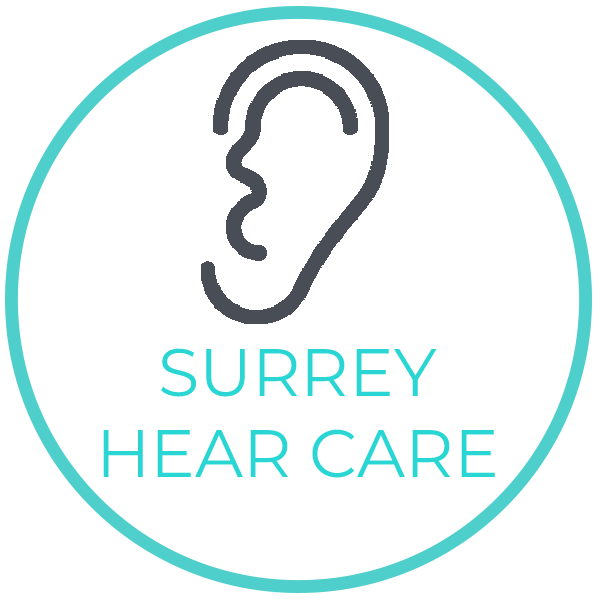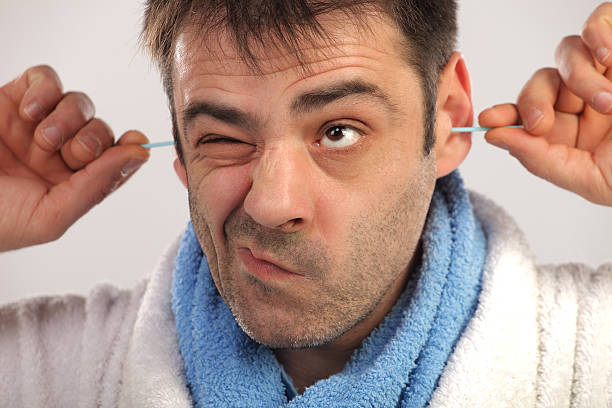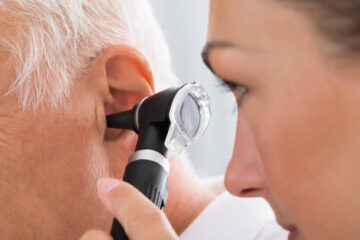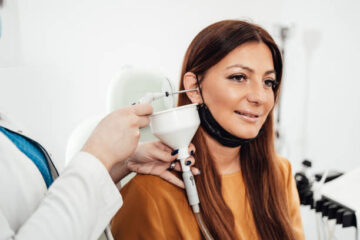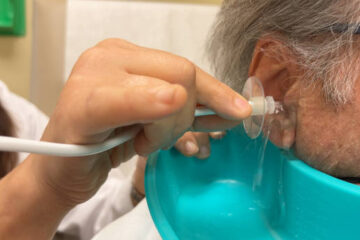At Surrey Hear Care, we are dedicated to promoting safe and effective ear care practices. One common habit that many people have is using cotton swabs to clean their ears. While it might seem like a quick and easy solution, using cotton swabs can actually pose significant risks to your ear health. In this article, we’ll explore the dangers of using cotton swabs and recommend safer alternatives for ear cleaning.
Why People Use Cotton Swabs
Cotton swabs, or Q-tips, are often used to remove ear wax and clean the ear canal. People use them for various reasons:
- Convenience: They are easily accessible and commonly found in most households.
- Perceived Effectiveness: Many believe that cotton swabs effectively remove ear wax.
- Habit: Some people have been using them since childhood and continue the practice out of habit.
However, these perceived benefits come with substantial risks.
The Dangers of Using Cotton Swabs
- Pushing Ear Wax Deeper
- Instead of removing ear wax, cotton swabs often push it further into the ear canal. This can cause blockages and make it difficult for ear wax to naturally exit the ear.
- Risk of Ear Injury
- The ear canal and eardrum are delicate structures. Inserting a cotton swab too far can cause cuts, abrasions, or even puncture the eardrum, leading to pain and potential hearing loss.
- Compacting Ear Wax
- By pushing ear wax deeper, cotton swabs can compact it against the eardrum, creating a hard mass that is more difficult to remove and may require professional intervention.
- Infection Risk
- Introducing cotton swabs into the ear canal can introduce bacteria, increasing the risk of ear infections.
- Tinnitus and Hearing Loss
- Damage caused by cotton swabs can lead to tinnitus (ringing in the ears) and temporary or permanent hearing loss.
Safer Alternatives for Ear Cleaning
Instead of using cotton swabs, consider these safer methods to maintain ear hygiene:
- Let Ear Wax Migrate Naturally
- Ear wax naturally moves out of the ear canal on its own. When it reaches the outer ear, you can gently wipe it away with a damp cloth.
- Use Olive Oil-Based Ear Drops
- Olive oil-based ear drops can soften ear wax, making it easier for it to exit the ear canal naturally. Apply a few drops while lying down with the affected ear facing upwards, and remain in that position for a few minutes to allow the oil to penetrate.
- Over-the-Counter Ear Drops
- There are various over-the-counter ear drops designed to soften ear wax. Follow the instructions on the package for safe use.
- Seek Professional Help
- For significant ear wax buildup, it’s best to visit a professional. At Surrey Hear Care, we offer safe and effective ear wax removal services, including microsuction and irrigation.
When to See a Professional
If you experience any of the following symptoms, it’s time to seek professional help from Surrey Hear Care:
- Persistent Ear Pain: Ongoing discomfort or pain in the ear.
- Hearing Loss: Sudden or significant reduction in hearing.
- Tinnitus: Persistent ringing or buzzing in the ear.
- Ear Discharge: Fluid leaking from the ear.
- Dizziness: Frequent episodes of dizziness or balance issues.
Our experienced audiologists at Surrey Hear Care use state-of-the-art techniques to safely and effectively remove ear wax. Whether you visit our clinics in Wimbledon, Wallington, or Teddington, or use our home visit service in Croydon, Banstead, Sutton, and surrounding areas, you can trust us to provide professional and compassionate care.
Conclusion
While it might be tempting to use cotton swabs for ear cleaning, the risks far outweigh any perceived benefits. By adopting safer ear care practices and seeking professional help when needed, you can protect your ear health and maintain optimal hearing. Contact Surrey Hear Care today to learn more about our ear care services and how we can help you achieve and maintain healthy ears.
